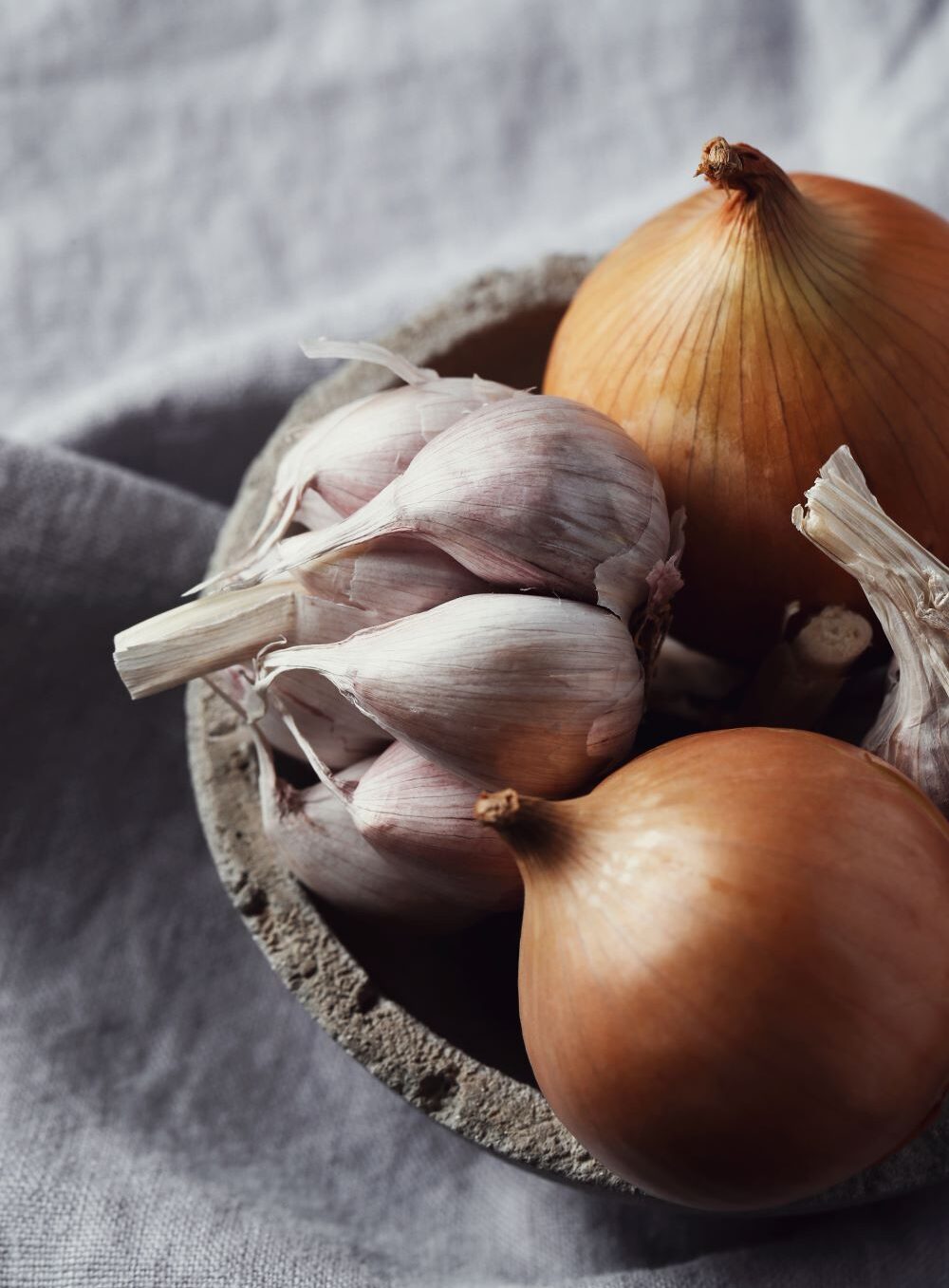GERD
Gastroesophageal reflux disease (GERD) is among the most common gastrointestinal disorders. Experts estimate that 18% to 28% of the US suffers from this condition.
No one knows exactly how GERD develops, but one thing is clear. The gut plays a role. It should be no wonder that GERD symptoms respond well to dietary changes that support a healthy gastrointestinal system.
How can individuals identify if they may be suffering from this disorder, and what diet changes can they make to treat it at home?
How We Help
GERD is a common disorder affecting the esophagus in the GI tract. It is not life-threatening but may cause deadly complications if left untreated. Luckily, dietary and lifestyle changes can lower the risk of GERD or help treat pre-existing symptoms.
Are you searching for ways to alleviate the symptoms of GERD? We believe that a healthy brain and body begins with a healthy gut. Schedule a consultation with us today to learn why.
GERD Relief Starts With a Healthy Gut
Disclaimer: The health information on this site is provided for general informational and education purposes only and is not a substitute for professional advice. Accordingly, before taking any actions based upon such information, we encourage you to consult with the appropriate professionals. The use or reliance of any information contained on this site is solely at your own discretion. Revolution Gut Health does not claim to heal, treat or cure any of the conditions mentioned.
What is Gastroesophageal Reflux Disease (GERD)?
GERD is a long-term condition that happens when stomach acid flows back into your esophagus, the tube connecting your mouth to your stomach. This acid reflux can hurt the lining of your esophagus, leading to pain and, in the long run, problems that could be very serious.

Why Does GERD Happen?
GERD happens when the lower esophageal sphincter (LES) malfunctions. The lower esophageal sphincter (LES) is like a one-way valve—it lets food go into the stomach but stops stomach acid from returning to the esophagus. But, if the LES gets weak or relaxes when it shouldn’t, acid from the stomach can leak out and go back up the esophagus. We call this acid reflux.
Various factors can contribute to LES weakness and the development of GERD. Some of these are being overweight, pregnant, smoking, taking certain medicines, and eating foods high in fat or caffeine. All of these things can make the LES tighten or loosen it up.
Have A Question?
Contact our team for a FREE discovery call.
Not accepting new patients at this time
GERD Symptoms
GERD is a digestive condition featuring acid reflux or when stomach acid flows into the esophagus. The esophagus is the part of the gastrointestinal (GI) tract that connects the mouth to the stomach.
Stomach acid is an irritant. Many people experience acid reflux occasionally; issues arise when it becomes chronic. Over time, stomach acid can harm the tissues lining the esophagus.
Chronic irritation of the esophageal lining may lead to the painful symptoms.
Common Symptoms of GERD
The most common symptoms of GERD happen due to stomach acid irritating the esophageal lining. They include:
- Heartburn (i.e., a burning sensation in the chest) after eating, at night, or when lying down
- Regurgitating food or stomach acid
- Chest pain
- Pain in the upper stomach
- Feeling like there’s a lump in the throat
- Sore throat
- Increased salivation
- Shortness of breath
Some people also experience signs of GERD that primarily show up at night. Symptoms of nighttime GERD include coughing, laryngitis, and the emergence of new or worsening of pre-existing asthma symptoms.
Severe GERD Symptoms
GERD can also cause more severe symptoms. More concerning signs of this GI disorder are:
- Dysphagia (i.e., difficulty swallowing)
- Odynophagia (i.e., pain when swallowing)
- Anemia (i.e., low red blood cell counts)
- Weight loss
- Hematemesis (i.e., vomiting blood)
Individuals experiencing these symptoms should schedule an appointment with their healthcare provider.
Complications of Untreated GERD
GERD is a manageable condition. However, when left untreated, it may lead to severe complications that may be life-threatening. These complications include:
Esophagitis: A condition featuring the presence of open sores (ulcers) on the esophagus, as well as symptoms like heartburn and bleeding
Strictures: A condition featuring scarring, resulting in a narrowing of the esophagus and difficulty ingesting food and liquids
Barrett’s Esophagus: A condition featuring unhealthy changes to esophageal cells, which may increase the risk of cancer
Barrett’s esophagus increases the risk of squamous cell carcinoma. This type of cancer affects the upper and middle esophagus. Adenocarcinoma is a second type of esophageal cancer that develops in the lower tissues.
Importantly, it is not true that GERD causes cancer. However, failing to seek treatment for chronic acid reflux can make it more likely that someone will have cancer, especially if other cancer risk factors are present already.
How Is GERD Treated?
The good news is that GERD can usually be treated by changing how you live. Usually, small changes can make a big difference.
Foods That Help GERD
Many people find relief from GERD symptoms with dietary changes alone. There are some foods to add and others to avoid. Foods for GERD can counteract stomach acid to make it less irritating and reduce acid reflux.
The best foods to eat for GERD treatment are:
- Vegetables, especially leafy greens, cruciferous vegetables, asparagus, green beans, cucumbers, and potatoes
- Rolled oats and steel-cut oats
- Fruits low in acid, such as melons, apples, bananas, and pears
- Lean proteins, including fish
- Egg whites
- Healthy fats like avocados, olive oil, walnuts, and flaxseeds
Ginger may also be beneficial. There is evidence that it can help soothe GI complaints. However, heartburn is a rare side effect of ginger, which may worsen GERD symptoms for some people.


Foods to Avoid for GERD
Foods high in unhealthy fats, acids, and sugars are common foods known to exacerbate GERD symptoms. Other ingredients people with GERD should avoid include the following:
- Chocolate
- Caffeine
- Allium vegetables like garlic and onions
- Strong spices
- Mint
- Alcohol
- Carbonated drinks
These are only the most well-known foods that can cause or worsen acid reflux. Individuals should treat their symptoms on a case-by-case basis, paying attention to other ingredients that may bother their GI tracts.
How Is GERD Diagnosed?
If you suffer from acid reflux often, see a doctor. They will start by talking about your symptoms and health history. You might need more tests if your symptoms don’t improve after the first treatment. These could include an endoscopy (to look at your esophagus visually), a 24-hour pH probe study (to measure how much acid is in your esophagus), or a manometry test (to measure how fast your esophagus muscles are contracting).
GERD Risk Factors
The foods people eat are not the only thing that can cause or worsen GERD symptoms. Other risk factors include age, body mass index (BMI), smoking, pre-existing mental health conditions, and low physical activity levels.
Age
GERD is more common in older adults than younger people. Specifically, adults 50 or older have a higher risk of GERD.
BMI
People with higher BMIs have a higher risk of acid reflux than those with lower BMIs. One study found that gaining 3.5 BMI units is associated with a 3x increase in the risk of new GERD symptom onset.
Tobacco Use
Smoking weakens the sphincter, a muscle that prevents stomach acid and other fluids from flowing back into the esophagus. This phenomenon explains why tobacco smokers are at a higher risk for GERD.
Mental Health Disorders
Anxiety and depression are risk factors for GERD. However, experts believe the link may be bidirectional. In other words, GERD may also increase the risk of these mental health disorders.
Physical Activity
The connection between GERD and physical activity is not clear-cut. In some people, exercise worsens pre-existing GERD symptoms. However, exercise can help people manage their weight, a risk factor for GERD.
Unlock a healthier you today!
Take the first step towards a happier, healthier life with our FREE discovery call.
Not accepting new patients at this time